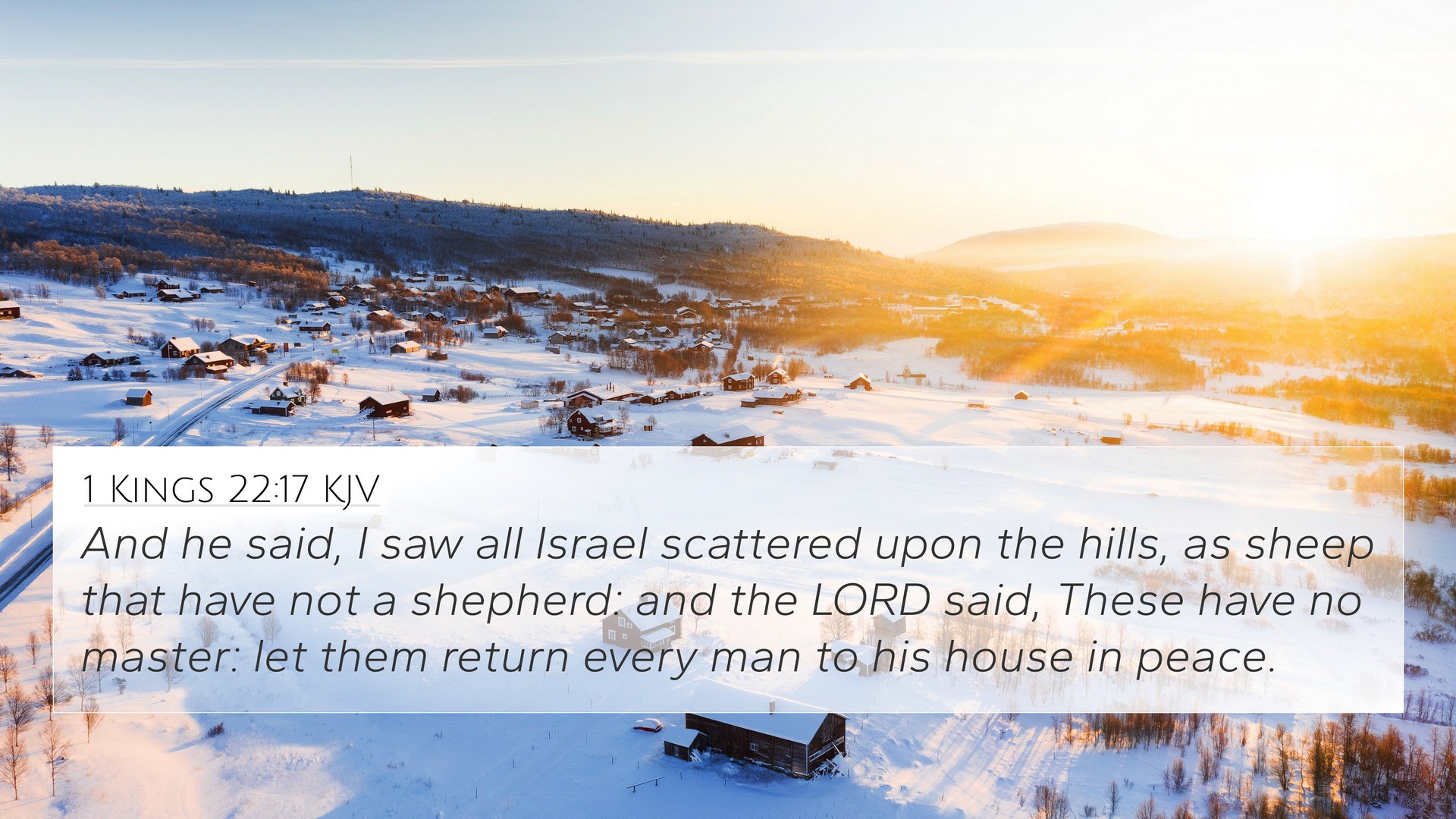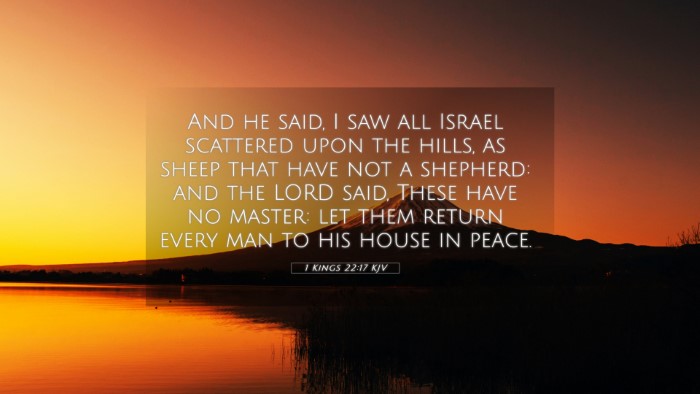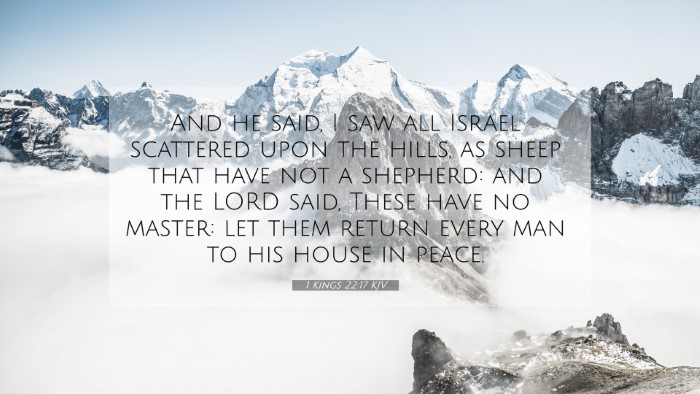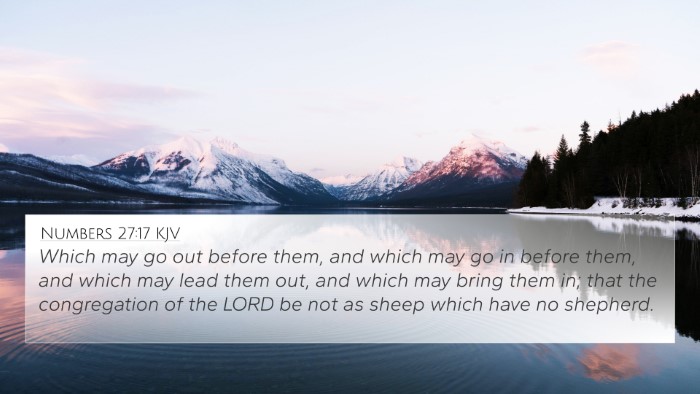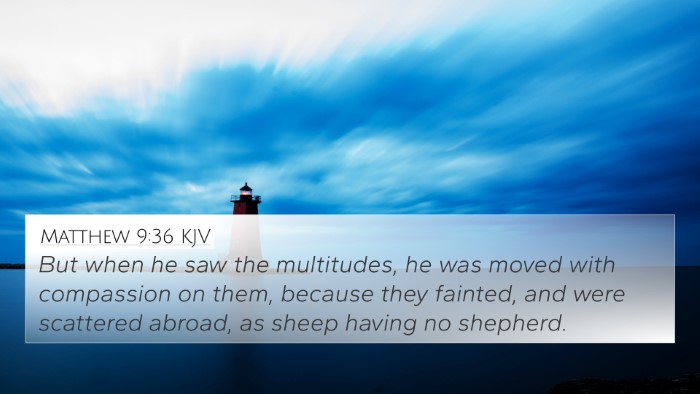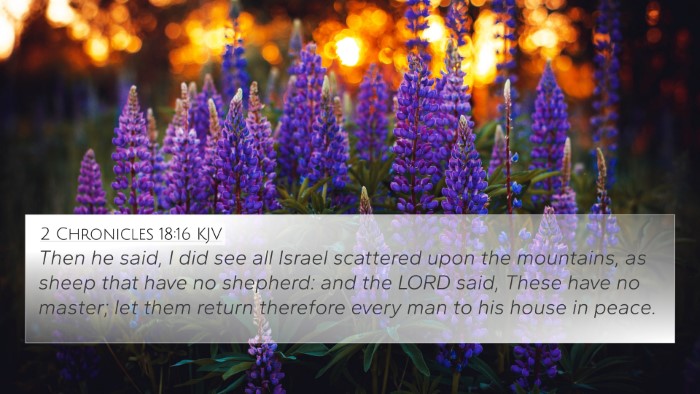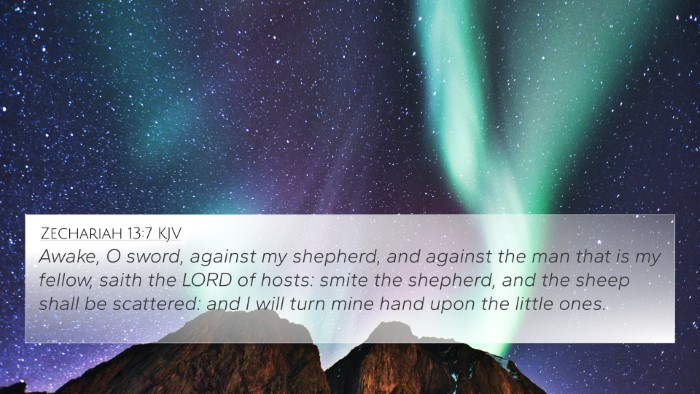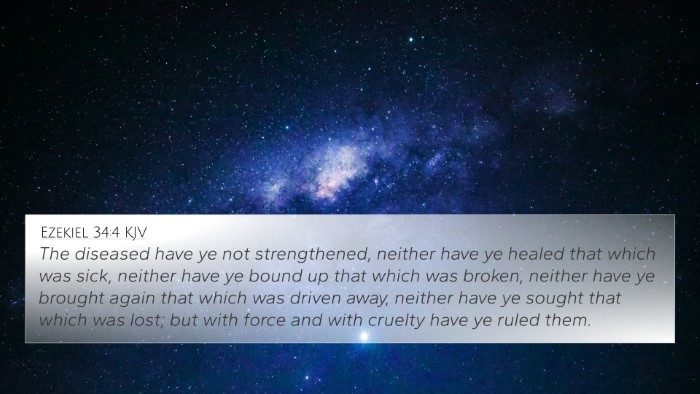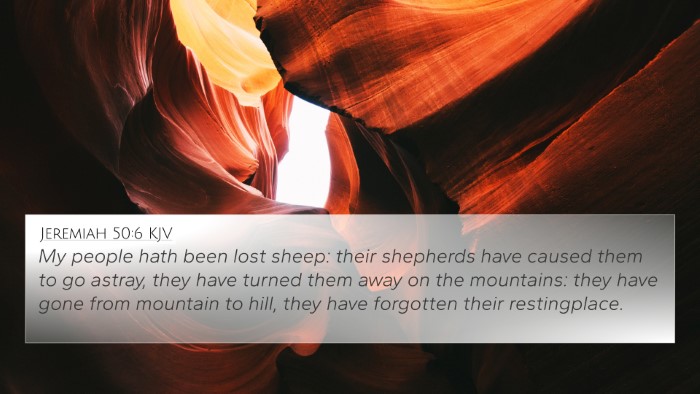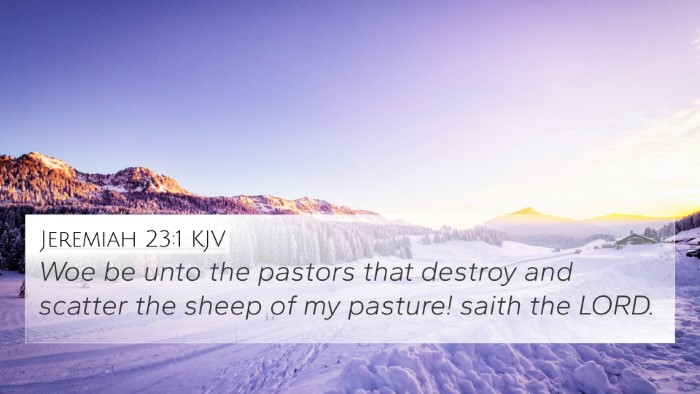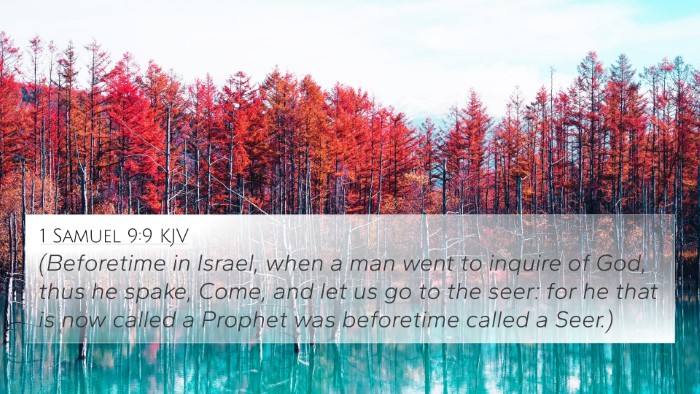Understanding 1 Kings 22:17
1 Kings 22:17 states: "And he said, I saw all Israel scattered upon the hills, as sheep that have not a shepherd: and the Lord said, These have no master: let them return every man to his house in peace." In this verse, we find a poignant metaphor illustrating the dire situation of Israel at the time.
Summary of Biblical Context
This verse occurs within the narrative of King Ahab of Israel and the conflict regarding the battle at Ramoth-gilead. The prophet Micaiah delivers a vision from God that reveals the chaotic state of the nation, characterized by a lack of leadership and guidance.
Insights from Commentaries
Combining insights from Matthew Henry, Albert Barnes, and Adam Clarke provides a deeper understanding of this passage.
Matthew Henry's Commentary
Matthew Henry emphasizes the importance of good leadership and illustrates how the absence of a shepherd leads to confusion and strife among the people. He notes that the vision of Israel scattered like sheep symbolizes vulnerability and a desperate need for guidance. Henry further points out that the Lord's response indicates a divine judgment upon Ahab's leadership.
Albert Barnes' Notes
Albert Barnes focuses on the metaphor of sheep without a shepherd, which not only reflects the physical condition of Israel but also highlights their spiritual state. Barnes connects this imagery to the concept of divine providence, asserting that God's protection is vital for the well-being of His people. He suggests that this verse serves as a warning against poor leadership and the consequences of straying from divine instruction.
Adam Clarke's Commentary
Adam Clarke provides a detailed analysis of the prophetic vision experienced by Micaiah. He comments on the significance of the shepherd metaphor as depicting the need for care, guidance, and protection. Clarke interprets God's declaration of 'no master' as a reflection of Ahab's failure and a call for the people to return to peace, signaling a temporary reprieve from conflict.
Thematic Connections and Cross-References
Thematic connections from 1 Kings 22:17 reveal profound biblical themes such as leadership, guidance, and God's sovereign control over nations. Here are several cross-references that relate to this verse:
- Matthew 9:36 - "But when He saw the multitudes, He was moved with compassion for them, because they were weary and scattered, like sheep having no shepherd."
- Ezekiel 34:5 - "So they were scattered because there was no shepherd; and they became food for all the beasts of the field when they were scattered."
- Mark 6:34 - "And Jesus, when He came out, saw a great multitude and was moved with compassion for them, because they were like sheep not having a shepherd."
- Jeremiah 50:6 - "My people have been lost sheep. Their shepherds have led them astray."
- Psalm 23:1 - "The Lord is my shepherd; I shall not want."
- John 10:11 - "I am the good shepherd. The good shepherd gives His life for the sheep."
- Isaiah 53:6 - "All we like sheep have gone astray; we have turned, every one, to his own way."
Implications for Modern Readers
This verse and its imagery of leadership resonate with contemporary believers. It reminds us of the necessity for compassionate and godly leadership in every sphere of life, whether in church, community, or personal relationships. The scattering of Israel serves as a cautionary tale about the spiritual dangers of disengaged leadership.
Utilizing Cross-References for Deeper Study
To further explore the connections between these verses and the themes they present, utilizing tools for bible cross-referencing can be incredibly helpful. Cross-reference Bible study allows readers to identify relationships, enhancing understanding across scripture. Tools like a bible concordance or a bible cross-reference guide can facilitate deeper insights into thematic links and scriptural dialogues.
Conclusion
In conclusion, 1 Kings 22:17 provides not only a historical context but also spiritual truths about leadership and God's provision. By engaging with this verse through cross-references and commentary insights, believers can glean meaningful lessons applicable in today's context.
